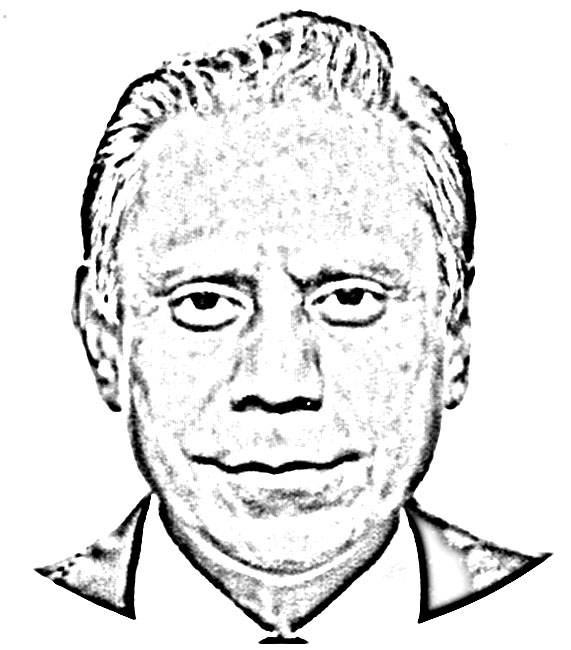Sultan M Hali
DESPITE the persistence of the global pandemic COVID-19, the West is continuing to disparage China for its alleged maltreatment of Uighurs in Xinjiang. The fact is that some Uighurs, the Muslim majority residing in Xinjiang, were instigated by vested interests to commit acts of extremism, terrorism and separatism. These fanatic and misled elements were tackled by the Chinese government in a concerted manner. A well thought out strategy was planned and executed. The policy was based on bringing prosperity to the region so that the quality of life of the Uighurs can be raised and they can become a part of the mainstream. Simultaneously, the hardcore miscreants were apprehended and brought into the ambit of law and severely dealt with. Minor offenders were invited to re-indoctrination centers, which provided them the opportunity to acquaint themselves with the Chinese Constitution, Law and vocational training of their choice. The policy was successful but the western propaganda persists.
This scribe took the initiative of launching Pak-China Friendship Forum and organizing a webinar under its banner on the subject of “Success of Chinese Policies against Extremism in Xinjiang”. Senator Nisar Memon, the former Minister for Information and Broadcasting Chaired the webinar while four eminent speakers from Pakistan and four from abroad read papers. The Pakistani speakers comprised Professor Dr Shafei Moiz Hali, Ambassador Javed Hafiz, Group Captain (Retd) S M Hali and Engineer Zamir Awan. The foreign speakers were: David Bromwich, National President of New Zealand-China Friendship Society, renowned academic, Professor Zhou Rong from China, Christine Bierre, Editor-in-Chief of the monthly Nouvelle Solidarité and an expert at the Schiller Institute of France, and William Jones, the Washington Bureau Chief for the weekly magazine, Executive Intelligence Review (EIR).
Speakers at the webinar expressed the hope that the completion of China Pakistan Economic Corridor (CPEC) would usher in a new era of development and prosperity in Xinjiang. They reiterated that the Belt and Road Initiative infused hope for a brighter future in Xinjiang as it connects China with eight countries which include Afghanistan, India, Kazakhstan, Kirghizstan, Mongolia, Pakistan, Russia and Tajikistan. Xinjiang — a western province of China — is a vast region of deserts and mountains, possessing abundant natural resources such as metal ores, sub-soil and renewable energy resources. “Xinjiang is today one of the fast growing areas of China with the energy sector leading the way. Big industries are being set up in the region and the CPEC will meet its growing energy needs,” said columnist and former Ambassador Javed Hafiz, highlighting success of the Chinese policy which spurred economic growth in the area.
Contrary to the propaganda peddled by foreign media about instability in Xinjiang, he said the Chinese government has been successful in poverty alleviation, controlling extremism and making this region a hub of development activities. Javed said the central government had invested 2.35 trillion Yuan in Xinjiang during the last several years. Between 2014 and 2018, about 10 per cent of the provincial population had been lifted out of poverty. He said last year, Xinjiang rural GDP (gross domestic product) increased by 9.7 per cent. “Today, no child is out of school in Xinjiang.” Unemployment in the region had been alleviated, whereas youth from other areas came to meet huge development requirements in Xinjiang. The former ambassador noted that the health indicators of Xinjiang showed a life expectancy of 72 years in the region, proving the fact that ‘Beijing does care about people of Xinjiang.” Javed also rejected the propaganda of motivated quarters about presence of concentrated camps in the area. “The region has camps which only impart vocational training and language courses,” he added.
Former Air Force Officer Sultan Mahmood Hali said fake news was being churned out by the enemies of China based on lies and negated the on ground situation of Xinjiang. He said China adopted the ‘Going West’ policy in 1999 to reduce disequilibrium between western provinces of China through a dynamic investment policy, aimed at boosting industrial production infrastructure development. The policy had been renewed several times since 1999, he added. Hali said a development plan was rolled out in Xinjiang in 2010 to transform its rich base of raw material such as coal, gold, oil and uranium into a real economic force along with agriculture and tourism. He said Chinese President Xi Jinping brought this policy a leap forward with the launching of the Belt and Road Initiative which made the Xinjiang province the outpost to the Eurasian continent.
Sinologist Prof Engr Zamir Ahmed Awan said the Chinese government, adopting a unique model of development, had asked 19 other provinces to allocate a certain amount of funds for Xinjiang development. The provinces including Beijing, Shanghai, Guangdong, Zhejiang and Liaoning were engaged in the commitment of ‘pairing assistance’ support projects in Xinjiang to promote the development of agriculture, industry, technology, education and health services in the region. The foreign participants strongly rejected the propaganda of foreign media about the prevalence of extremism in Xinjiang and endorsed the fact that the region had been witnessing economic development and prosperity. Dave Bromwich stated that the western interpretation of these camps and the numbers in them is reinforced by a German anthropologist, Adrian Zenz, a senior fellow in China studies at the far-right Victims of Communism Memorial Foundation, which was established by the US government in 1983. The webinar was a roaring success and will pave the way for better understanding of China and debunking propaganda against it.
—The writer is retired PAF Group Captain and a TV talk show host.









